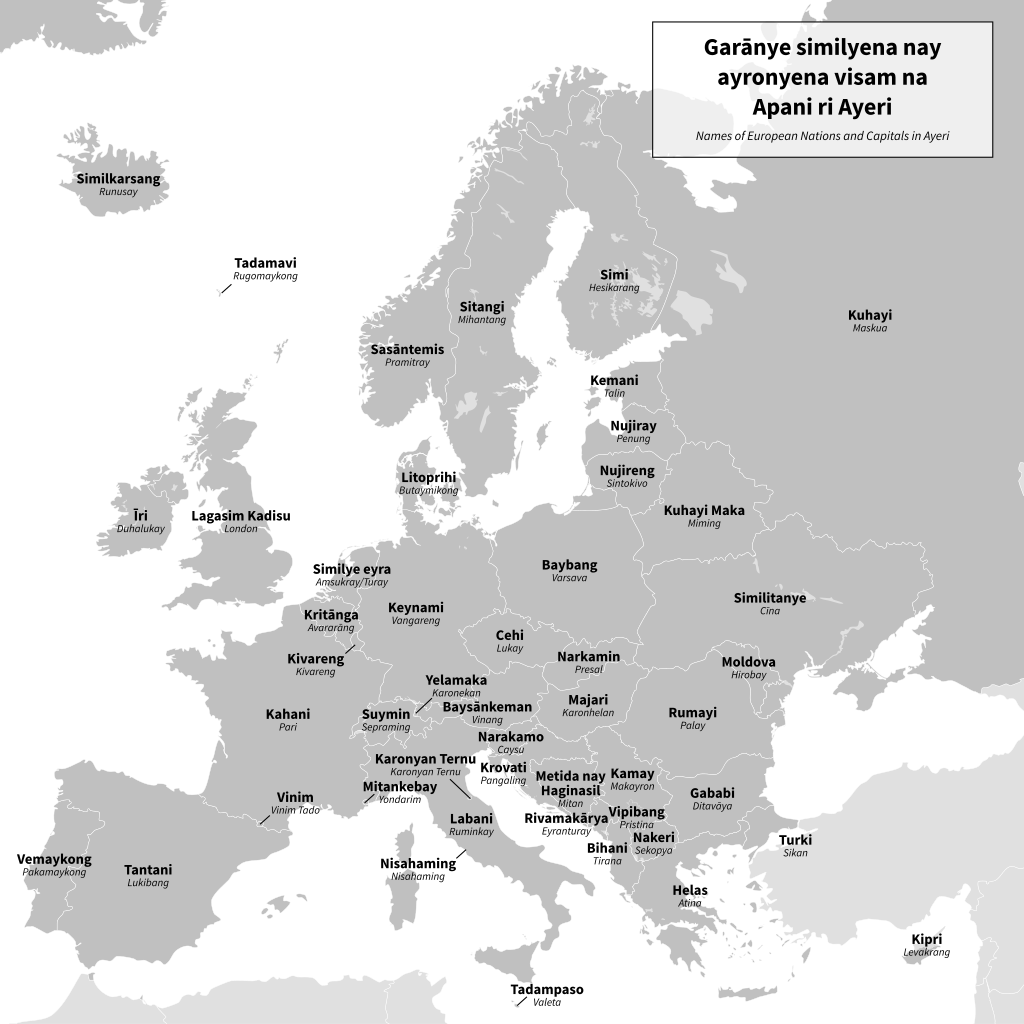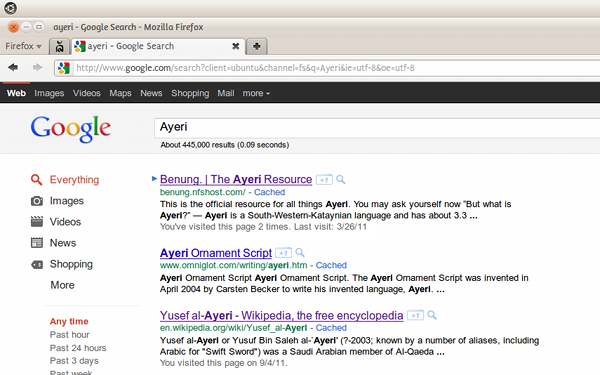Just for fun, I’m sometimes trying to hunt down etymologies of place names and try to translate them more or less literally into Ayeri:

My method in making the map linked here was not terribly scholarly, though, as my source was mostly Wikipedia, so your mileage may vary. Where there was more than one etymology, I picked the one that seemed most reasonable (roughly going by Ockham’s razor, ish) or otherwise appealing to me; if guesses at the etymology were too insecure, I just sticked with phonologically adapting the name into Ayeri. There’s a few territories included which are not strictly independent nations or whose status as such is disputed – I included those because they still seemed relevant enough to me.
The complete list can be found on a separate page. More continents may follow as I feel like doing conlang work. I started with Europe since that’s where I live.
- “Maix” et al. “Blank Map of Europe.” Wikimedia Commons. 21 Feb. 2012. Wikimedia Foundation, 7 Jun. 2012. Web. 6 Jul. 2013. ‹http://commons.wikimedia.org/wiki/File:Blank_map_of_Europe.svg› (Published under CC-BY-SA-2.5 license). Captions added (click to download SVG source file).
- Updated map to include a title, the European part of Turkey, and correct licensing as required by the source.
- Ugly CC-BY-SA badge in the picture is not necessary, so removed that. Also, bigger image, smaller file size.
- Hopefully fixed the caption box at top right in the SVG file now. When viewed in programs other than Inkscape, the text didn’t show or only as a black box.
